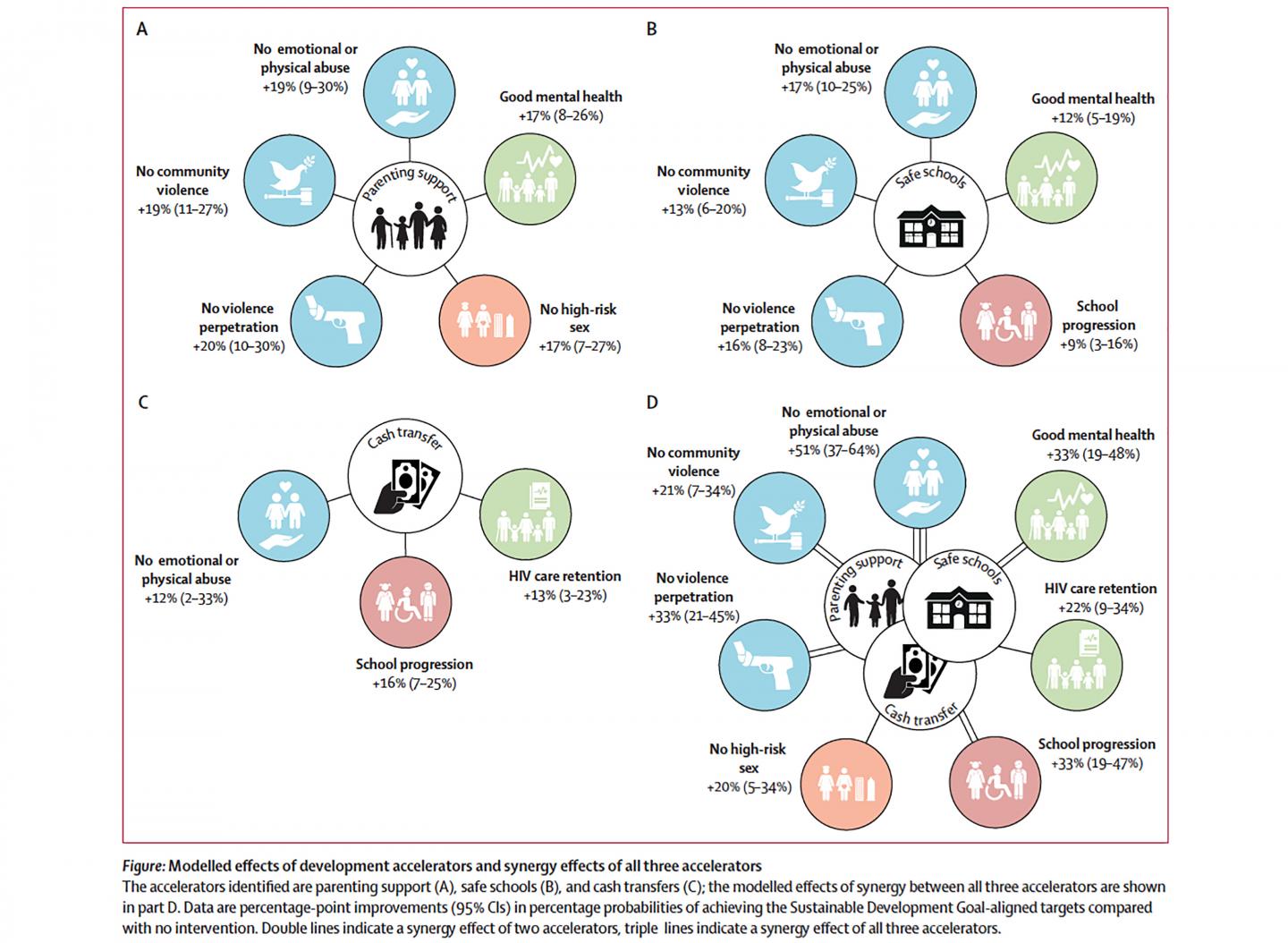Wits University in South Africa has collaborated in a project with Oxford University to test a United Nations development approach to achieving the Sustainable Development Goals (SDGs)

Credit: Oxford University
The results of the study were published today in The Lancet Child and Adolescent Health. They showed that high parenting support, government cash transfers received by households, and schools without bullying (‘safe schools’) were three development ‘accelerators’, each of which was associated with positive outcomes for targets in at least three SDGs.
Accelerators are provisions that can improve the lives of vulnerable populations in several SDG areas. There are 17 SDGs covering 169 targets.
The Improving Lives by Accelerating Progress Towards the SDGs for Adolescents Living with HIV study, in collaboration with Wits University as well as the University of Cape Town, University College London, and the United Nations Development Programme, is the first to test the validity of the UN’s development accelerator approach.
“Our results illustrate that, even for a highly vulnerable group in an impoverished district, well-chosen programmes can impact beneficially on targets in several SDGs. For instance, by providing social welfare grants, safe schools, and supportive parenting for these highest-risk teens, we can make multiple positive impacts across health, education, gender equality and violence,” says Orkin, who conducted the statistical calculations and modelling.
The study further identifies specific combinations of accelerators (synergies). These show ‘depth effects’- i.e., cumulative positive associations with given SDG-aligned targets. For example, if adolescents living with HIV access both parenting support and cash transfers, findings show significantly greater benefits.
To test the validity of accelerators and synergies in vulnerable groups, researchers drew upon interviews with 1063 adolescents living with HIV (aged 10-19 years) in the Eastern Cape province of South Africa. This was the region’s first large-scale community-traced cohort of this group to track clinical outcomes, as well as social, educational, familial, sexual health, and community experiences.
The study suggests that the UN’s approach provides an innovative solution. By identifying accelerators and synergies across and within SDG goals and targets, governments and donors may be able to maximise positive policy impacts.
“It’s gratifying for Wits to be contributing to an international collaboration of global relevance,” says Orkin.
Publication of the paper coincides with the International Paediatric Association Congress, which takes place from March 17-21 in Panama, Central America, and is part of a special issue in the journal on adolescent health in low- and middle-income countries.
###
Media Contact
Deborah Minors
[email protected]
Original Source
http://www.




